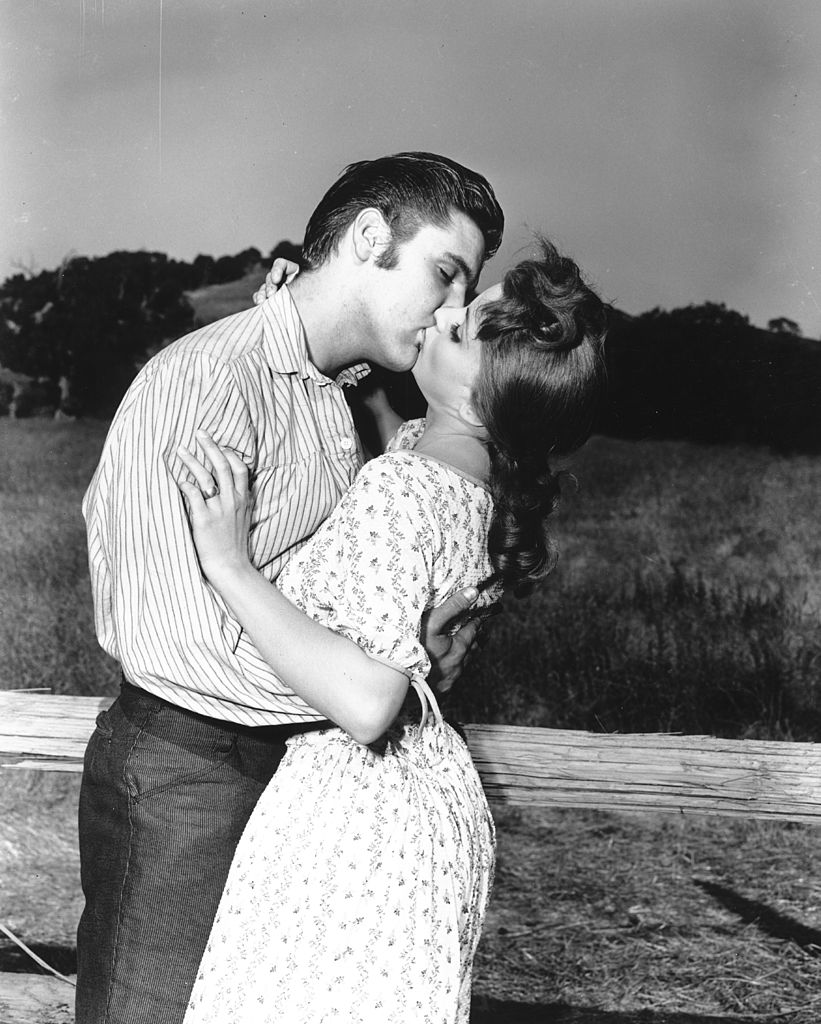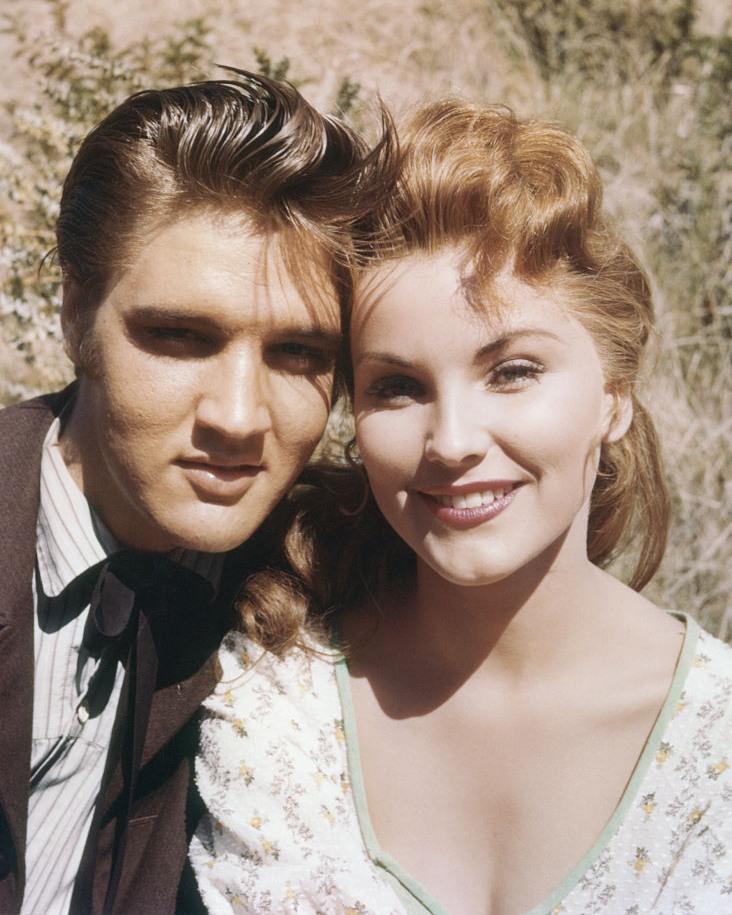In 1956, Elvis Presley made his big-screen debut in the film Love Me Tender, a romantic Western drama set during the final days of the American Civil War. While Elvis was already a music sensation by this time, this film marked the beginning of his cinematic journey and introduced audiences to a new dimension of his talent.
From his heartfelt performance to the film’s iconic music, Love Me Tender remains a cherished part of pop culture history. Yet, despite its popularity, many viewers may not realize the lesser-known facts, behind-the-scenes quirks, and historical inaccuracies that make this film both memorable and amusing.
The Unexpected Success of Love Me Tender

Originally titled The Reno Brothers, the film was renamed shortly before release to capitalize on the success of Elvis’s song “Love Me Tender.” The title track was such a hit that it shaped the movie’s marketing, poster designs, and ultimately, the story’s emotional tone.
The film itself takes inspiration from the true story of the Reno Gang, a group of outlaws active in the 1860s who were credited with committing the first peacetime train robbery in the U.S. While the movie plays fast and loose with history, the connection gives the plot a dramatic edge.
Elvis Presley’s Passion for Acting
Although known as the King of Rock and Roll, Elvis had deep ambitions to become a serious actor. Influenced by cinema legends like Marlon Brando and James Dean, Elvis had long dreamed of appearing on screen in a dramatic role. When he landed the part of Clint Reno — the youngest of four brothers — he approached it with great seriousness.
Even though the role wasn’t initially written for him and had been turned down by other actors, Elvis memorized not only his own lines but those of his co-stars. His dedication left an impression on the crew, with producer David Weisbart describing him as “humble, polite, and very serious about acting.”
Interestingly, this is the only film in Elvis’s career where he did not receive top billing. He appeared third in the credits, behind Richard Egan and Debra Paget.
Musical Moments That Weren’t Historically Accurate

Elvis initially signed on believing he wouldn’t be required to sing in the film. However, the producers soon added musical performances to capitalize on his stardom. Within minutes of his first scene, Elvis’s character sings — a moment that, while charming, feels more 1950s concert than Civil War-era realism.
During a benefit scene in the film, screaming fans can be heard reacting to his performance — clearly an anachronism that reflects the audience’s enthusiasm more than historical context.
Behind the Music: Love Me Tender’s Origins
The famous title track “Love Me Tender” is based on a Civil War ballad called “Aura Lee,” with newly adapted lyrics. Though credited to Vera Matson for copyright reasons, the lyrics were written by her husband, Ken Darby.
Elvis introduced the song on The Ed Sullivan Show on September 9, 1956 — weeks before the film’s release. The performance generated such excitement that the single received over a million pre-orders, making it a gold record before it even hit shelves. The song went on to top the charts for five weeks and became one of Elvis’s signature ballads.
The Debra Paget Connection

Debra Paget played Cathy Reno, Elvis’s on-screen love interest. At the time of filming, she was already a well-established actress, and by many accounts, Elvis was taken with her both personally and professionally.
Their chemistry was evident, and behind the scenes, Elvis reportedly proposed marriage to her. While Paget appreciated his sincerity and kindness, she declined due to family objections and personal hesitation. She later revealed she saw Elvis more as a kind friend than a romantic partner.
Interestingly, it’s believed that Priscilla Presley later mimicked Debra Paget’s hairstyle from Love Me Tender in an attempt to appeal to Elvis — a small detail that highlights how much of an impact Debra had on his life.
Film Ending Controversy and Hair Color Mix-Up
Spoiler alert: At the end of the film, Elvis’s character, Clint Reno, is fatally wounded. This conclusion upset many fans, including Elvis’s own mother. Due to the overwhelming emotional response, producers decided to add a final scene showing a silhouette of Elvis singing the title track during the end credits.
However, this caused a notable continuity error. By the time the scene was filmed, Elvis had already dyed his hair black — creating a mismatch with his earlier light brown appearance in the rest of the movie.
Funny Mistakes and Historical Bloopers

Despite its emotional impact and polished performances, Love Me Tender includes several amusing mistakes that sharp-eyed viewers have spotted over the years:
-
Zipper blooper: One character zips up his trousers — a detail out of place for a film set in the 1860s, as zippers weren’t invented until the early 20th century.
-
Modern cars in frame: In one emotional scene where Cathy cries at a window, a car can be seen parked in the background — clearly a modern vehicle.
-
Guitar continuity error: During the performance of “We’re Gonna Move,” Elvis strums a guitar. But when he removes his hands, the music continues — a clear audio mismatch.
-
Gun placement inconsistencies: In a tense scene involving armed men, a pistol appears and disappears between cuts due to inconsistent camera angles.
While these goofs might break historical immersion, they’ve become part of the film’s charm and provide lighthearted fun for fans watching closely.
Legacy of Love Me Tender
Though not initially designed as a vehicle for Elvis’s stardom, Love Me Tender became a turning point in his career. The overwhelming audience reaction — including fans who screamed during movie screenings — proved that Elvis could draw viewers far beyond the music scene.
The film set the stage for over 30 Elvis movies to follow. While some criticized the decision to prioritize musical numbers over plot, it’s clear that Elvis’s presence on screen brought joy to millions and influenced generations of music and film fans alike.
Final Thoughts
Love Me Tender may be remembered as Elvis Presley’s first foray into acting, but it’s much more than that. It’s a time capsule of 1950s America — of a young artist exploring his identity, of audiences falling in love with a new kind of star, and of movie magic that overcame its flaws with charm and charisma.
For fans old and new, the film remains a treasured part of Elvis’s legacy — not just for the songs or the romance, but for the quiet details, bloopers, and human moments that made him so beloved.
